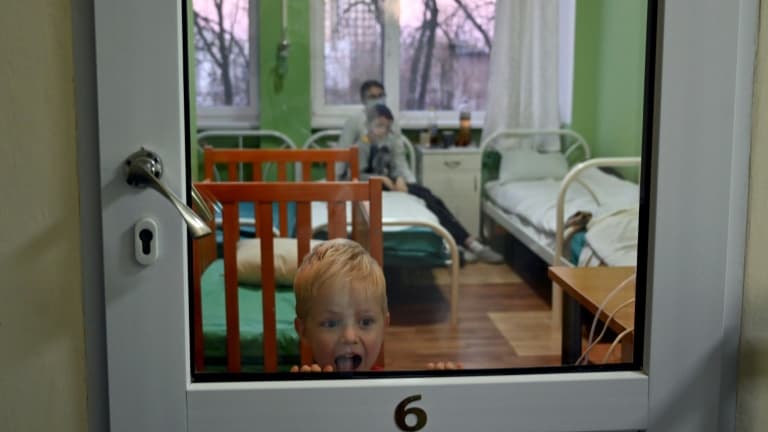One study identified 85 proteins linked to severe forms. It was conducted by researchers from the Royal Children’s Hospital in Melbourne, based in particular on blood samples sent by the Paris Necker hospital.
The results of this new study will potentially pave the way for better care of young children affected by a severe form of Covid-19. In a study published Monday in the journal type communicationsAustralian researchers supported by French colleagues, indicate that they have identified several proteins present in the blood of children affected by a severe form of the coronavirus.
The risk of PIMS syndrome
Although they are the age group least exposed to Covid-19, several children have developed severe forms of the disease since March 2020, particularly in France. At the end of January, Public Health France also sounded the alarm. The organization evoked « a very marked increase in the number of cases of PIMS » among the youngest « during the first three weeks of 2022 ».
« Between March 2, 2020 and January 23, 2022, 932 cases of pediatric multi-system inflammatory syndromes (PIMS or MIS-C) were reported to Public Health France, including 849 related to Covid-19 », mentioned to the the National Public Health Agency.
Among the young French people affected by this syndrome, 39% had to go to intensive care, and a 9-year-old child died in May 2020 in Marseille. Symptoms of this severe form of Covid, in addition to a negative test, are characterized by a rash, signs of myocardial dysfunction or acute gastrointestinal disturbances.
85 never-before-seen proteins
How to explain the development of these serious forms in a minority of children? This is the question that the Australian study unveiled on Monday tries to answer. Conducted by researchers from the Murdoch Children’s Research Institute, attached to the Royal Children’s Hospital in Melbourne, Australia, it is based on 54 biological samples from children.
The researchers thus compared 20 samples from healthy children with those of 34 children who had developed a severe form of Covid-19. Five having developed an acute respiratory distress syndrome, and 29 affected by the PIMS syndrome. The biological samples from the sick children were taken from the Necker hospital in Paris in 2020.
« What we were trying to do was analyze all the proteins in their blood. A lot of people hear about genomics, which is analyzing all the genes in a human body. We were doing proteomics, which is to look at all the proteins in the blood, in order to understand what is going on », explained to the Guardian Conor McCafferty a hematology researcher at the Murdoch Children’s Research Institute.
The study found that children who developed a severe form of the virus had specific proteins in their blood that were not found in non-sick children. A total of 85 proteins specific to PIMS syndrome and 52 related to acute respiratory distress syndrome were updated.
An example of international scientific collaboration
These discoveries could in particular make it possible to put in place more effective treatments for children suffering from severe forms of Covid-19.
« This work completes our understanding of the severe forms of Covid-19 in children and highlights physiopathological mechanisms that could be the subject of specific therapies to give children a greater chance of recovery », details the published article. this Monday.
In addition to lifting part of the veil on the origins of severe forms in children, this study illustrates the necessary international collaboration to overcome the Covid-19 pandemic.
« France had the blood samples. In Melbourne, we had the necessary equipment to carry out the proteomic analysis. This type of collaboration is one of the consolation prizes of this pandemic », explains Conor McCafferty.

